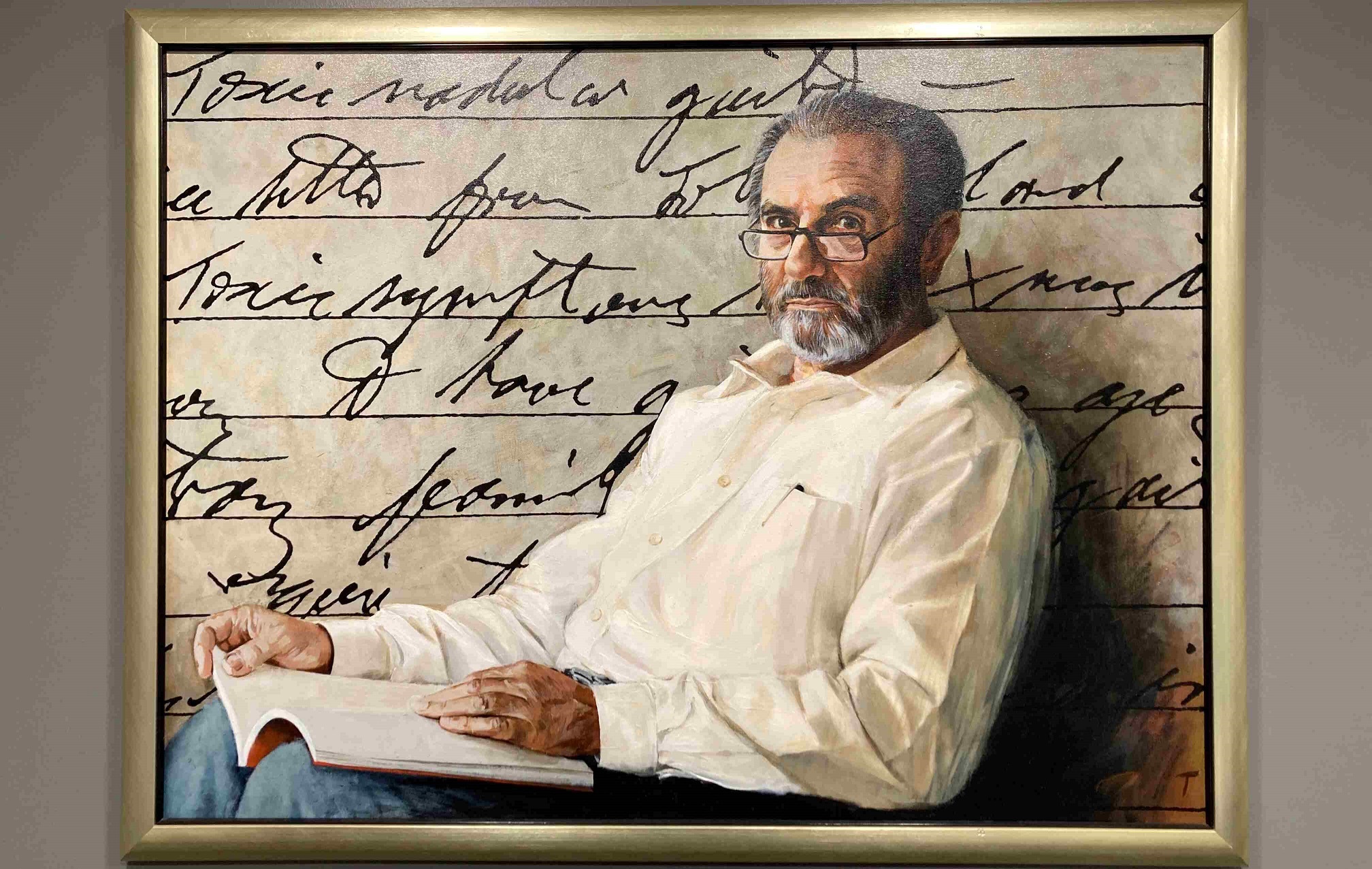VALE PROFESSOR LESLIE “LES” LAZARUS: 1929-2022
MBBS MRACP FAACB FRACP FRCPA AO

The AACB community mourns the passing of Professor Leslie 'Les' Lazarus.
Leslie "Les" Lazarus AO was an Australian endocrinologist who was one of the first co-Directors of the Garvan Institute of Medical Research, Sydney from 1966 to 1969 and sole Director from 1969 to 1990. At the Garvan Institute he led a joint laboratory and clinical research team studying diabetes and pituitary hormone secretions, in particular the secretion and clinical uses of human growth hormone.
From 1974 until 1988 Lazarus was an Associate Professor of medicine at the University of New South Wales and from 1988 until 1995 he was a Professor of medicine at the University of New South Wales. In 1995 he was appointed an Emeritus Consultant to St Vincent's Hospital, Sydney.
Below are some tributes from friends and colleagues.
From Peter Graham, AACB Vice President, Finance, Branches and Strategic Planning & past AACB CEO.
I first met Les when he transferred from the Garvan to take up the role of Director of St Vincent’s Pathology in 1990. One of his first initiatives was to relocate the reference Endocrine service he had established at the Garvan to St Vincent’s. Ross Vining and Lyn Boscato were among the staff he recruited to follow. The concept of an integrated pathology service in a large public hospital was considered radical at the time, as most disciplines still operated in their own silos.
I recall a meeting that Les and Ross organised with the Senior St Vincent’s Clinicians and pathology staff, where we heard first hand how we needed to reform if we were ever going to be able to compete in the private pathology space. Les’s vision was to create a first class cost effective pathology service for St Vincent’s Public Hospital, by supplementing with income from private pathology and clinical trials, a model (SydPath) that still endures today.
Les was a constant advocate for the AACB, he presented in many forums, including Current Concepts. His legacy to the pathology community and our patients is a testament to his leadership and brilliant mind.
From Margaret Stuart and Dr Glenn Edwards
Les Lazarus was a truly great medical leader. He was a force for the pursuit of individual and collective excellence. And he always aspired - and inspired others - to challenge orthodoxy, to break through ceilings, and to build a better world. After his arrival at St Vincent’s Pathology, Les didn't miss a beat. He led the St Vincent’s team with a vision to create a world class Pathology business, as SydPath. With George Smythe and his mass spectrometry lab, Les continued to advance our understanding of phaeochromocytoma and its biochemical diagnosis. As Chief Examiner with the Royal College of Pathologists of Australasia, Les always fought to elevate the role of the Chemical Pathologist - to look beyond the lab and, in partnership with clinicians, to support better patient care (indeed, Les championed the term “Chemical Pathology” which the RCPA adopted and continues to use today). Equally, Les understood the vital roles of Clinical Biochemists and the AACB. He built high-functioning teams and fostered an environment where scientist and Pathologist worked in close collaboration together.
Les saw further than others. His support for Paul Compton with his novel "Ripple Down Rules (RDR)” concept led to the LabWizard project - a model for user-maintained expert systems which remains unparalleled today. Ultimately this saw the creation of Pacific Knowledge Systems (PKS), with Paul, Glenn Edwards, and others, and the commercialisation of the RDR technology. Fast forward to today and Beamtree Ltd (as PKS is now known) is an ASX-listed leader in healthcare data and decision support - enabling better clinical decisions in many healthcare settings around the world.
Les was also a keen observer of - and participant in - world affairs. On one occasion, Les wrote a letter of congratulations to Vaclav Havel on his appointment as the first President of the Czech Republic. Closer to home, and it was never long before chats with Les turned to politics, to the rights of women, or to the symbolism of the flags flying outside the St Vincent’s entrance.
So while Les enabled the science, the research and the collaboration that set the direction for countless careers, today it is these memories of Les as humanist - as principled and statesman-like mentor - that are so deeply treasured by many